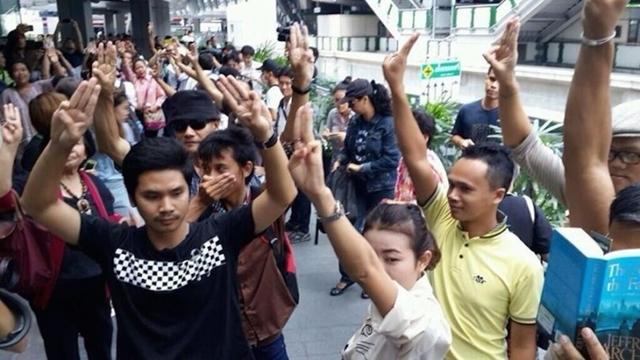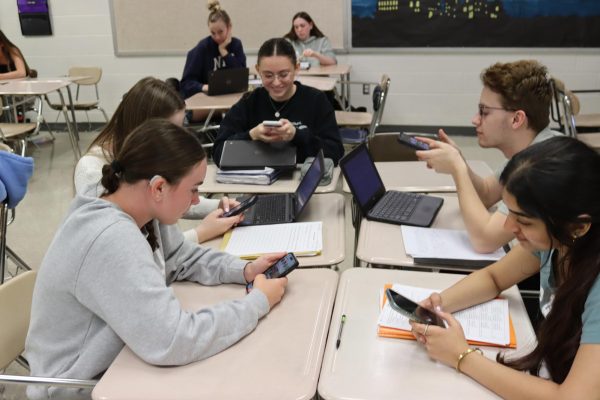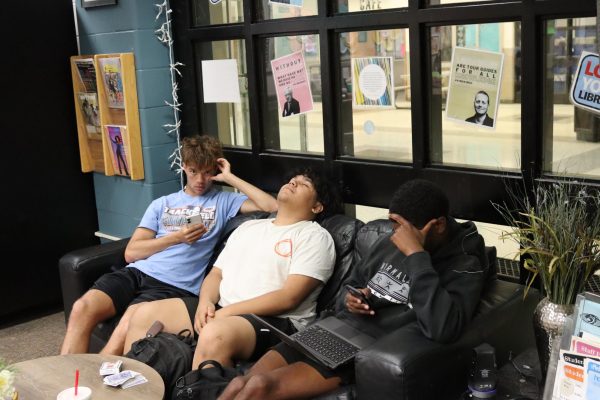Mockingjay salute no longer only fiction
Once a fictional gesture of defiance made famous by Suzanne Collins’ The Hunger Games trilogy, the three-fingered mockingjay salute has transitioned into reality, both in Ferguson’s protests and even in a country across the globe. Last Tuesday Thai protesters displayed the gesture to Prime Minister Prayuth Chan-Ocha to show their disapproval for Thailand’s military coup. These students and others who were inspired by this act of defiance have been detained by police for displaying salutes in public, though they were later released.
The Hunger Games series has become more than just entertainment in Thailand, where, according to The Associated Press, anti-coup activist Sombat Boonngamanong says, “Raising three fingers has become a symbol in calling for fundamental political rights.” The government’s response to the salute was swift. A cinema chain in Bangkok cancelled all screenings of the film The Hunger Games: Mockingjay Part One, the latest installment in the film’s series, and students protesting in theaters that did not cancel the film’s screenings have been detained by the police. Despite the threat of arrest, protestors continue to proudly display the salute.
Perhaps taking note of these acts of defiance, Chinese officials said that the release of the Hunger Games’ newest film would be delayed until at least January, though many speculate that the film will not be released in China until anti-Beijing protests come to a halt.
Closer to home, protesters in Ferguson have also been using popular culture as a platform for social change. A slogan from The Hunger Games’ most recent film, “If we burn, you burn with us” was scrawled on a local landmark on the night when jurors decided not to indict Officer Darren Wilson. Other graffiti displaying the mockingjay icon has also been spotted in the riot stricken city.
Students at West have their own opinions about the effectiveness of employing fiction in real-life revolutions. Abby Hamilton (12), stated that “It’s easy for everyone to interpret what it means since it’s worldwide and so mainstream. It gets across their message.” Erin Jochum (12), also believes that it’s effective. “I think it’s a symbol of strength that they’re ready to rise up against an oppressive government.”
Kaleigh Anderson (11) agrees, adding that it puts things in perspective for people who read the book purely for entertainment as opposed to those who are actually dealing with something in their lives that they can relate to the novels. Perhaps, as Peyton Ort (12) puts it, “It makes you realize the power books have, and the fact that they actually impact real life. Books can change the world.”









